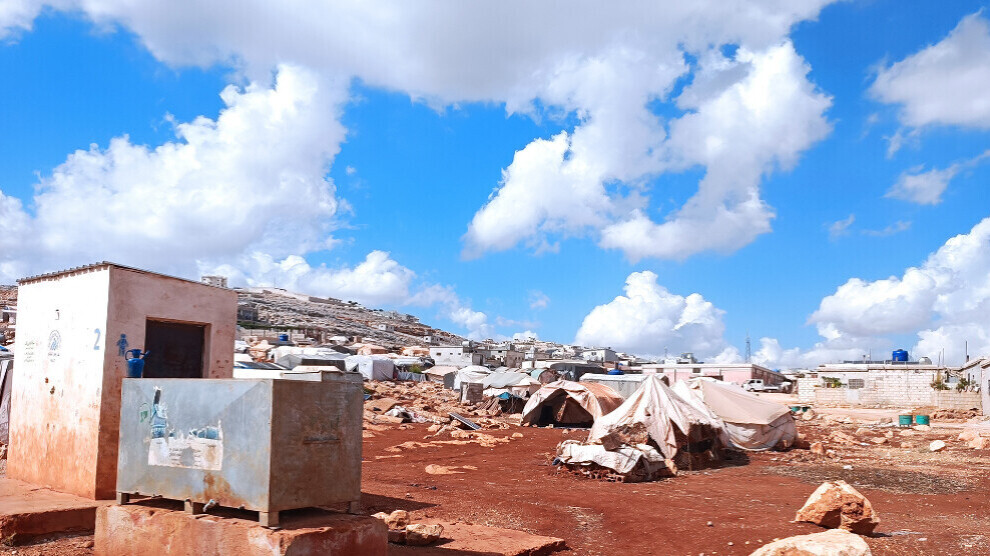Displaced women of occupied areas: We have an uncertain life
“We have an uncertain life in camps,” say women, who are forcibly displaced in Idlib due to the attacks of the Turkish state and Turkish-backed factions. “If the clashes continue, our living conditions will deteriorate.”

HADEEL Al-OMAR
Idlib- The people in Idlib, occupied by the Turkish state and Turkish-backed Hayat Tahrir al-Sham, have been suffering deteriorating living conditions. F42 civilians, including 10 women and 15 children have been killed in the clashes that broke out between Syrian government forces and Turkish-backed factions in Idlib last week. The ongoing clashes have displaced more than 80,000 people until now. The women displaced by the ongoing clashes have been staying in camps or shelters.
‘There is no food, health services or medicines’
33-year-old Samar Al-Zaydan had to leave her house with her children when the clashes broke out. Now, they stay in a shelter, located north of Idlib. Samar Al-Zaydan thinks the clashes will spread to the town of Ariha. “This shelter is not suitable for living. There is no food, health services or medicines. There are hundreds of displaced women staying in this center now. We have no access to the most basic needs, including drinking water,” she told NuJINHA.
‘We have an uncertain life’
Samar Al-Zaydan said that the shelter is safer than their houses. “I decided to stay in this shelter because there were daily bombardments and I was afraid for my children. Due to high rental prices, I could not rent a house. I have tried to find a tent many times; however, I could not. As displaced women, we have an uncertain life. No one knows how long these clashes will last. If the clashes continue, our living conditions will deteriorate. The displaced people have no access to any health or social services.”
They live in a tent of 25 square meters
Taqa Abdul Qader (35) is a displaced woman from Idlib’s Sarmin town. “Death is easier for me than displacement,” she said. Taqa Abdul Qader lost her husband in an attack on their town last year. She is the only breadwinner of her family. She stayed in her sister’s tent in the Deir Hassan camp with her children.
“We live together in a tent of 25 square meters. I tried to find a tent so that we can live in the camp until we return home. However, no tent was given to us. The camp is a crowded camp so the services provided by humanitarian aid organizations remain insufficient,” Taqa Abdul Qader told us that they would return Sarmin if they could not find a tent in the camp.
‘Displaced women need permanent housing’
Holud Al-Rajo (29), an employee of one of the humanitarian aid organizations in Idlib, pointed to the deteriorating living conditions of displaced women due to the lack of services. “Displaced women need permanent housing. All humanitarian aid organizations face difficulties in providing services to them because they do not have a permanent place to live.”
